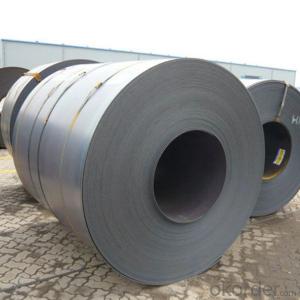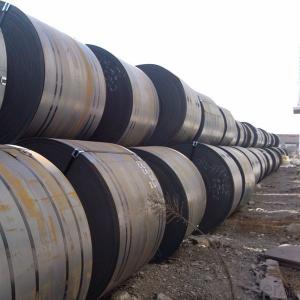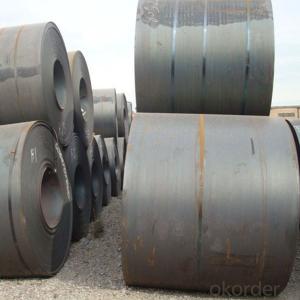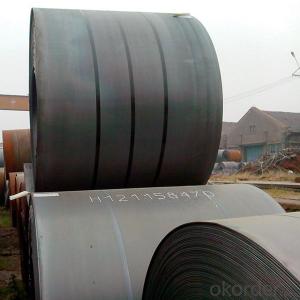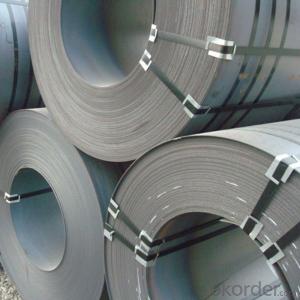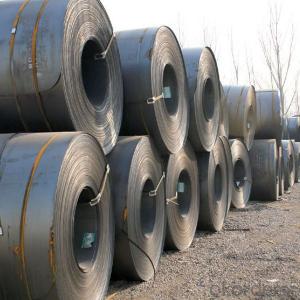Hot Rolled Steel Coils Q235 Carbon Steel Steel Sheets Made In China
- Loading Port:
- Qingdao
- Payment Terms:
- TT OR LC
- Min Order Qty:
- 25 m.t.
- Supply Capability:
- 20000 m.t./month
OKorder Service Pledge
OKorder Financial Service
You Might Also Like
Item specifice
DESCRIPTION FOR SS400 CARBON STEEL SHEET
1.Thickness: 1-200mm
2.Width: 100-3000mm
3.Length: 1000-12000mm
4. Applications :mining machinery, environmental protection, engineering
5. Grade:SS400 A 36 Q195.Q235.Q345.SPCC.SPCH
6.Surface : Hot Rolled Cold Rolled Galvanized Steel
DESCRIPTION FOR CARBON STEEL PLATE
Production | hot rolled st eel coils ss400 |
Port | Tianjin, China |
Category | Minerals & metallurgy |
Thickness | 1.8-16mm |
Width | 1000-1500mm |
Coil Weight | about 23 tons |
Material Grade | SS400\Q235\Q345B |
Technique | Hot Rolled |
Standard | GB ,JIS |
Test | With Hydraulic Testing, Eddy Current , Infrared Test |
Surface | 1) Bared 2) Black Painted (varnish coating) 3) Galvanized 4) Oiled |
Package | in bundles, strapped by strips. Or as customer’s requirement |
Sample | Common products, we can provide freely, for special production,we can depends on negotiation. |
MOQ | 50 tons |
Payment | 100% L/C at sight, 30% T/T in advance, and the balance against the copy of B/L or negotiation |
Delivery time | Within 10-25 days, according to quantity, asap save customer’s time |
Certificate | ISO |
DETAILED PICTURES FOR STEEL COILS
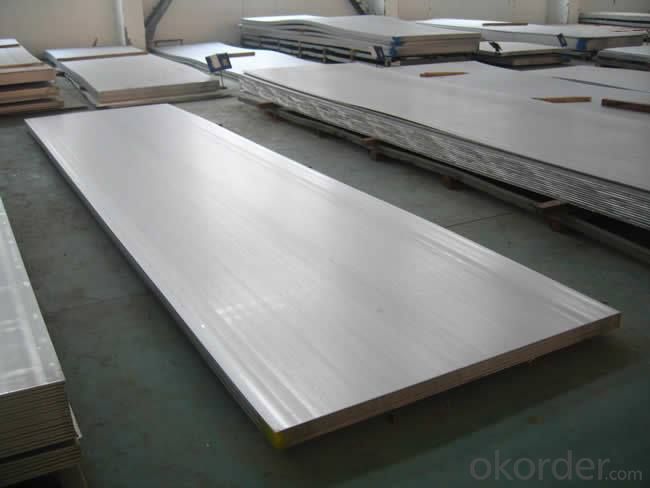
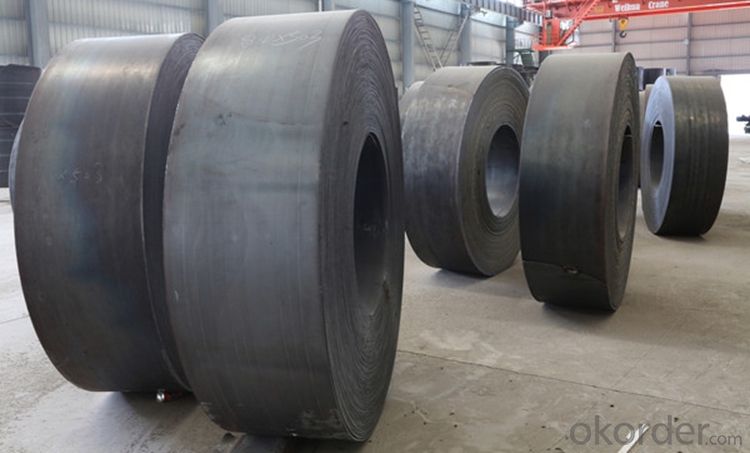
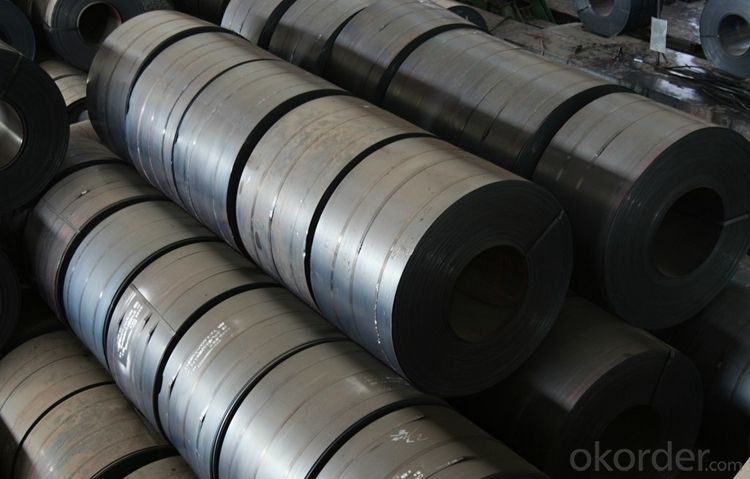
PACKING:
1.Big thickness:by bulk vessel
2.Small thickness:packed by steel strips and shipped by container
3.According to the requirements of customers'
TRADE TERMS :FOB, CFR, CIF
FAQ:
Q:How about the trade terms?
A:EXW,FOB,CFR,CIF will be accepted.
Q:How about your payment terms?
A:30%TT in advance and the balance against of copy of B/L.The irrevocable L/C at sight will be accepted.
- Q:What are the factors influencing the price of steel coils?
- The price of steel coils can be influenced by a variety of factors. These factors include: 1. Raw material costs: The cost of raw materials, such as iron ore and coal, directly affects the price of steel coils. Fluctuations in commodity prices can have a significant impact on the overall price. 2. Supply and demand: The balance between supply and demand in the steel industry plays a crucial role in determining the price of steel coils. If there is high demand, prices are likely to increase. Conversely, if there is an oversupply, prices may decrease. 3. Production and manufacturing costs: The cost of producing and manufacturing steel coils, including labor, energy, and transportation costs, can also impact the final price. Any changes in these costs can influence the overall price. 4. Currency exchange rates: The price of steel coils can be affected by fluctuations in currency exchange rates. If the currency in which steel is traded weakens against other currencies, it can result in higher prices. 5. Government regulations and policies: Government regulations, such as import tariffs, export restrictions, and environmental regulations, can impact the price of steel coils. These regulations can affect the cost of production and trade, ultimately influencing the price. 6. Market competition: The level of competition among steel manufacturers and suppliers can also impact the price of steel coils. If there are many suppliers and manufacturers, it can lead to competitive pricing and potentially lower prices. Conversely, if there are few suppliers dominating the market, prices may be higher. It is important to consider that these factors can vary over time and in different regions, which ultimately affects the pricing of steel coils in the market.
- Q:help me and my twin love this cutie in our form !? how do we steel hime from bitchey rebecca!? X X X xX
- I have the same problem, but without being a twin lol. I'm just guna play it very very dirty, I'm not usually a slut, but i hate to loose, and you do have an advantage, all boys like twins. Hope this helps. xx
- Q:What are the different types of steel coil loading and unloading methods used during processing?
- Some of the different types of steel coil loading and unloading methods used during processing include overhead cranes, forklifts, coil cars, and coil transfer systems.
- Q:What are the common coil thicknesses available for steel coils?
- The common coil thicknesses available for steel coils can vary depending on the specific application and industry requirements. However, some of the most common coil thicknesses for steel coils range from 0.5mm to 3mm. These thicknesses are commonly used in various manufacturing processes, including automotive, construction, and appliance industries. For lightweight applications or where flexibility is required, thinner steel coils with thicknesses ranging from 0.5mm to 1.5mm are often used. These thinner coils are suitable for applications such as automotive body panels, roofing, and general sheet metal fabrication. On the other hand, for applications that require higher strength and durability, thicker steel coils with thicknesses ranging from 1.5mm to 3mm are commonly used. These thicker coils are often utilized in heavy-duty construction, structural components, and industrial equipment manufacturing. It is important to note that these are just general ranges, and specific coil thicknesses can vary depending on the specific requirements of a particular project or customer preference. Steel coil thicknesses can be customized to meet specific needs, allowing for greater flexibility in various industries.
- Q:Can steel coils be used in the production of HVAC systems?
- Yes, steel coils can be used in the production of HVAC (heating, ventilation, and air conditioning) systems. Steel coils are commonly used in the manufacturing of HVAC equipment such as air handlers, condenser coils, evaporator coils, and heat exchangers. Steel coils provide durability and strength, making them suitable for withstanding the high pressures and temperatures involved in HVAC operations. Additionally, steel coils offer good heat transfer properties, allowing for efficient heat exchange between the refrigerant and the air being conditioned. Overall, steel coils are a reliable and commonly used component in the production of HVAC systems.
- Q:How are steel coils protected from mechanical damage?
- Steel coils are protected from mechanical damage through various methods such as using protective packaging materials like wooden crates or metal bands, applying plastic or paper interleaving, and utilizing specialized handling equipment during transportation and storage.
- Q:How are steel coils used in the production of food processing machinery?
- Steel coils are used in the production of food processing machinery as they are commonly used to create the structural frames and components of the machinery. Additionally, steel coils are often used to manufacture cutting blades, conveyor belts, and various other parts that require strength and durability in the food processing industry.
- Q:How are steel coils used in the production of metal facades?
- Steel coils are used in the production of metal facades as the primary material. These coils are unwound and then processed through various manufacturing techniques, such as cutting, shaping, and forming, to create the desired facade panels. The steel coils provide strength, durability, and versatility, allowing for the creation of aesthetically pleasing and functional metal facades in various architectural applications.
- Q:How are steel coils priced and traded in the market?
- Steel coils are priced and traded in the market based on several factors. The primary factor is the current demand and supply dynamics of the steel industry. When the demand for steel coils is high, the prices tend to increase, and vice versa. Another important factor in pricing steel coils is the cost of raw materials, such as iron ore and coal, which are essential for steel production. Fluctuations in the prices of these materials can directly impact the pricing of steel coils. Additionally, the quality and specifications of the steel coils also play a significant role in determining their price. Higher-quality coils with specific characteristics, such as strength, corrosion resistance, or surface finish, may command a premium price in the market. The trading of steel coils is primarily done through various platforms, including physical exchanges, futures contracts, and over-the-counter (OTC) markets. Physical exchanges allow buyers and sellers to trade steel coils by exchanging physical deliveries. Futures contracts, on the other hand, enable traders to buy or sell steel coils at a predetermined price and future date, providing a way to hedge against price fluctuations. The OTC market is another avenue for trading steel coils, where buyers and sellers negotiate and agree on prices directly without going through a formal exchange. This provides flexibility and customization in trading, allowing for specific requirements to be met. Overall, the pricing and trading of steel coils in the market are influenced by demand and supply dynamics, raw material costs, quality specifications, and trading platforms. It is a complex process that requires careful consideration of various factors to determine fair prices and facilitate efficient trading.
- Q:What are the common sizes of steel coils?
- The specific needs and requirements of different industries determine the variations in common sizes of steel coils. However, the steel manufacturing and processing sectors commonly utilize standard sizes. These sizes include: 1. Slit Coils: Typically smaller, slit coils are readily available in widths ranging from 0.5 inches to 72 inches. The weight of slit coils varies, usually falling between 1000 pounds and 50,000 pounds. 2. Master Coils: Larger in size, master coils are generally utilized in steel processing facilities for the production of different steel products. The width of master coils commonly ranges from 36 inches to 96 inches, while the weight may vary from 5,000 pounds to 60,000 pounds. 3. Sheet Coils: Construction, automotive, and appliance manufacturing industries often employ sheet coils. The standard sizes for sheet coils vary, but they are commonly found in widths of 48 inches, 60 inches, and 72 inches, with lengths ranging from 96 inches to 240 inches. 4. Plate Coils: Primarily utilized in heavy-duty applications such as shipbuilding, bridge construction, and pressure vessel manufacturing, plate coils tend to be larger in size. Their widths typically range from 36 inches to 96 inches, while lengths vary from 96 inches to 480 inches. It is important to note that these sizes are not fixed and can be customized according to specific customer requirements. Steel manufacturers and suppliers possess the capability to produce coils in various sizes to cater to the diverse needs of their clients.
1. Manufacturer Overview |
|
|---|---|
| Location | |
| Year Established | |
| Annual Output Value | |
| Main Markets | |
| Company Certifications | |
2. Manufacturer Certificates |
|
|---|---|
| a) Certification Name | |
| Range | |
| Reference | |
| Validity Period | |
3. Manufacturer Capability |
|
|---|---|
| a)Trade Capacity | |
| Nearest Port | |
| Export Percentage | |
| No.of Employees in Trade Department | |
| Language Spoken: | |
| b)Factory Information | |
| Factory Size: | |
| No. of Production Lines | |
| Contract Manufacturing | |
| Product Price Range | |
Send your message to us
Hot Rolled Steel Coils Q235 Carbon Steel Steel Sheets Made In China
- Loading Port:
- Qingdao
- Payment Terms:
- TT OR LC
- Min Order Qty:
- 25 m.t.
- Supply Capability:
- 20000 m.t./month
OKorder Service Pledge
OKorder Financial Service
Similar products
New products
Hot products
Related keywords
